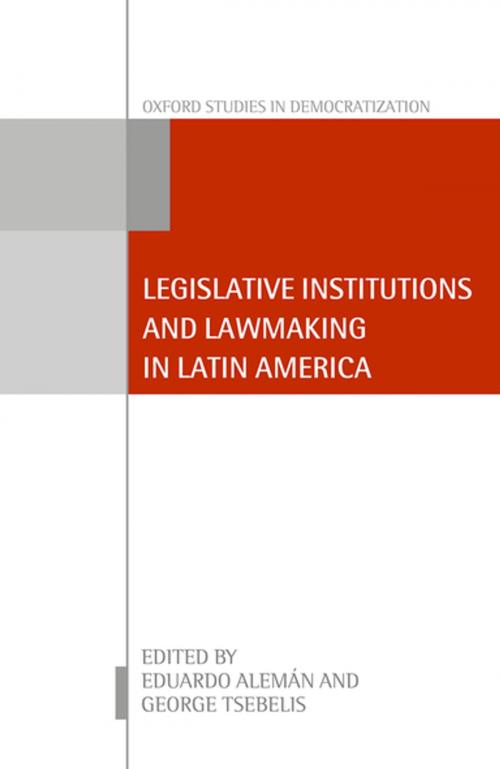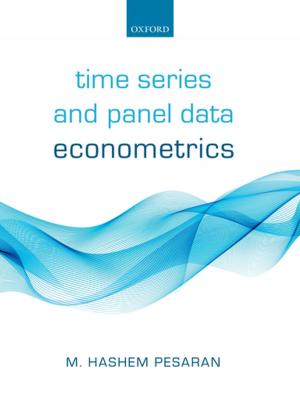Legislative Institutions and Lawmaking in Latin America
Nonfiction, Social & Cultural Studies, Political Science, International, Foreign Legal Systems, Politics, History & Theory| Author: | ISBN: | 9780191083600 | |
| Publisher: | OUP Oxford | Publication: | September 1, 2016 |
| Imprint: | OUP Oxford | Language: | English |
| Author: | |
| ISBN: | 9780191083600 |
| Publisher: | OUP Oxford |
| Publication: | September 1, 2016 |
| Imprint: | OUP Oxford |
| Language: | English |
In this volume, twelve experts on Latin American politics investigate the ways in which the interaction between legislative institutions and the policy positions of key actors affects the initiation and passage of legislation, covering seven Latin American Countries: Argentina, Brazil, Chile, Colombia, Mexico, Peru, and Uruguay. These seven presidential systems vary widely in terms of their legislative institutions and the position of relevant actors. The introduction provides a framework to understand the interaction of legislative majorities, political institutions, and policy position, and each chapter begins with a description of the constitutional and congressional rules that allocate powers to propose, amend, and veto legislation. The authors then identify the political actors who have these prerogatives and apply the framework to show how their policy positions and relative strengths influence legislative decision-making. The findings are consistent with the basic argument of the book that presidents with extensive legislative powers may be constrained by the positions of their legislative allies, whereas weaker presidents may be well-positioned to build successful coalitions to achieve their legislative goals. The essays in this volume demonstrate that institutional design, which determines the allocation of legislative powers, must be considered along with the policy preferences of key legislative actors in order to construct a full picture of law-making. Oxford Studies in Democratization is a series for scholars and students of comparative politics and related disciplines. Volumes concentrate on the comparative study of the democratization process that accompanied the decline and termination of the cold war. The geographical focus of the series is primarily Latin America, the Caribbean, Southern and Eastern Europe, and relevant experiences in Africa and Asia. The series editor is Laurence Whitehead, Senior Research Fellow, Nuffield College, University of Oxford.
In this volume, twelve experts on Latin American politics investigate the ways in which the interaction between legislative institutions and the policy positions of key actors affects the initiation and passage of legislation, covering seven Latin American Countries: Argentina, Brazil, Chile, Colombia, Mexico, Peru, and Uruguay. These seven presidential systems vary widely in terms of their legislative institutions and the position of relevant actors. The introduction provides a framework to understand the interaction of legislative majorities, political institutions, and policy position, and each chapter begins with a description of the constitutional and congressional rules that allocate powers to propose, amend, and veto legislation. The authors then identify the political actors who have these prerogatives and apply the framework to show how their policy positions and relative strengths influence legislative decision-making. The findings are consistent with the basic argument of the book that presidents with extensive legislative powers may be constrained by the positions of their legislative allies, whereas weaker presidents may be well-positioned to build successful coalitions to achieve their legislative goals. The essays in this volume demonstrate that institutional design, which determines the allocation of legislative powers, must be considered along with the policy preferences of key legislative actors in order to construct a full picture of law-making. Oxford Studies in Democratization is a series for scholars and students of comparative politics and related disciplines. Volumes concentrate on the comparative study of the democratization process that accompanied the decline and termination of the cold war. The geographical focus of the series is primarily Latin America, the Caribbean, Southern and Eastern Europe, and relevant experiences in Africa and Asia. The series editor is Laurence Whitehead, Senior Research Fellow, Nuffield College, University of Oxford.















